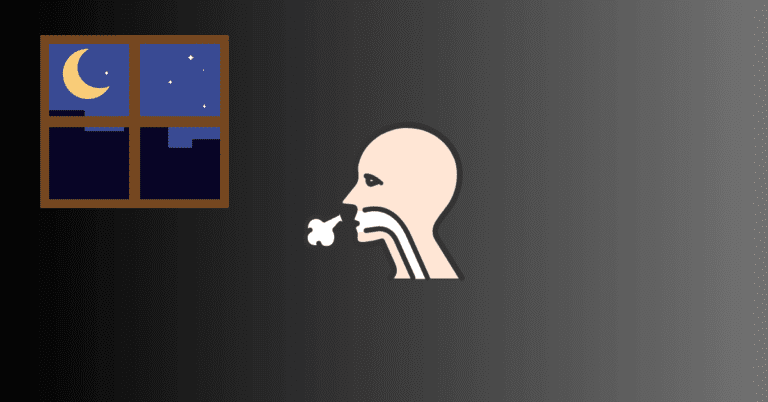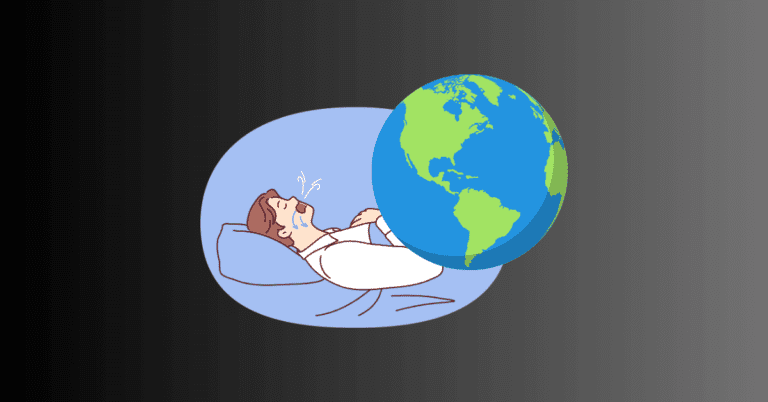Common Causes of Snoring: Could it be Sleep Apnea?
Jeremy Smith is a long-term CPAP user and sleep apnea advocate. After being diagnosed with severe obstructive sleep apnea, he created ByJeremySmith.com to help others navigate CPAP therapy through personal stories, gear reviews, and practical advice.
As we know, many people snore. Dogs snore, cats snore, and maybe even dolphins snore.
Snoring is everywhere. You or your partner probably snores, which is perhaps why you have found your way here!
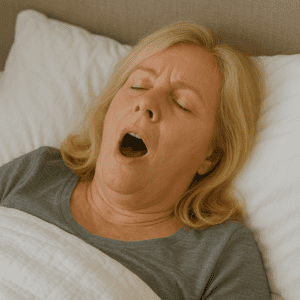
While occasional snoring may not be a cause for concern, chronic or loud snoring can be a sign of a more serious underlying condition like sleep apnea which is what I have.
In fact, I have the most common form of sleep apnea, which is obstructive sleep apnea. Before being diagnosed with severe obstructive sleep apnea, I was a very loud snorer. My snoring wasn’t just a nuisance; it was a symptom of something more serious. In this article, we’ll explore the common causes of snoring, why it happens, and how it can relate to sleep disorders like sleep apnea.
What Is Snoring?
Snoring occurs when air flows past relaxed tissues in the throat, causing those tissues to vibrate as you breathe. This vibration creates the familiar snoring sound, which can range from quiet and intermittent to loud and constant.
Snoring can affect your quality of sleep and disturb those around you, especially if it’s loud and persistent.
Common Causes of Snoring
Several factors can contribute to snoring, some of which are temporary and others that might indicate an underlying health condition like sleep apnea. Let’s break down the most common causes of snoring:
1. Obstructive Sleep Apnea (OSA)
One of the most serious causes of snoring is obstructive sleep apnea (OSA), a condition where the airway becomes partially or fully blocked during sleep. In OSA, the muscles in the throat relax too much, causing the airway to narrow or collapse, which interrupts breathing.
This blockage forces air through a smaller space, which creates loud snoring. OSA can lead to frequent awakenings, daytime fatigue, and an increased risk of serious health problems such as heart disease and stroke.
As someone diagnosed with severe sleep apnea, I know firsthand how loud and disruptive snoring can be. But of course, I wasn’t aware. All I knew was that I had a very sore throat and headaches when I woke up.
My snoring was a symptom of my condition, and it wasn’t until I started CPAP therapy that my snoring and other sleep apnea symptoms improved.
2. Nasal Congestion or Blocked Airways
Nasal congestion and blocked airways are common causes of snoring. When your nasal passages are congested due to colds, allergies, or sinus infections, it forces you to breathe through your mouth, increasing the likelihood of snoring. Even structural issues, such as a deviated septum, can cause snoring by restricting airflow through the nose.
I’ve personally dealt with a deviated septum my entire life, which made breathing through my nose difficult. At age 37, I underwent surgery in the hopes of improving my breathing and reducing my snoring. Unfortunately, the operation didn’t have the desired effect—my snoring persisted.
As it turns out, my issues were more related to allergies than the structural deviation in my nose. The nasal congestion caused by allergies was still a significant factor in my snoring, making it harder to get restful sleep.
3. Sleep Position
The way you sleep can significantly impact whether or not you snore.
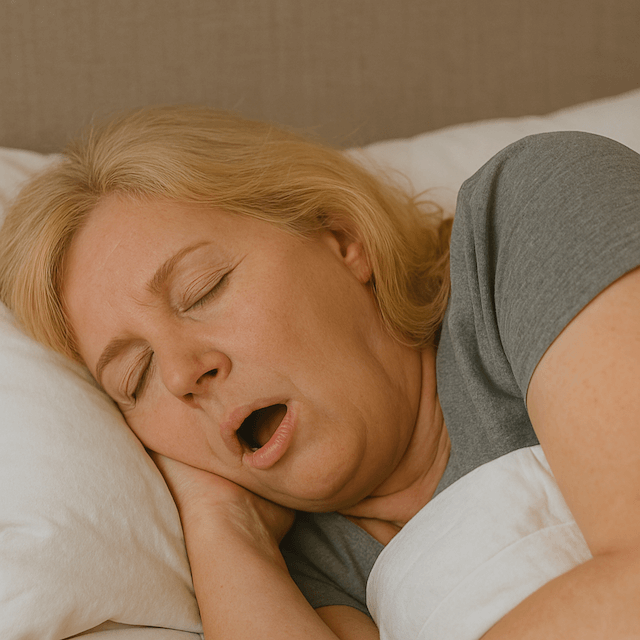
Sleeping on your back can cause your tongue and soft palate to collapse toward the back of your throat, partially obstructing the airway and leading to snoring. Sleeping on your side can help reduce snoring by preventing tissue collapse in the throat.
4. Obesity or Excess Weight
Carrying excess weight, particularly around the neck, can contribute to snoring. Extra tissue around the throat can place pressure on the airway, causing it to narrow during sleep.
This increases the likelihood of airway obstruction and, as a result, snoring. Weight loss is often recommended for people who snore due to obesity, as it can help reduce the severity of snoring and improve overall sleep quality.
5. Alcohol and Sedative Use
Alcohol and sedatives can relax the muscles in the throat, which increases the likelihood of snoring. These substances cause the throat muscles to relax more than usual during sleep, allowing the tissues to collapse and obstruct the airway.
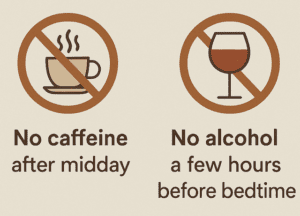
If you notice that your snoring worsens after drinking alcohol or using sedatives, it may be worth reducing or eliminating these substances, especially before bedtime.
6. Aging
As we age, the muscles in the throat naturally become weaker and less toned, which can increase the likelihood of snoring. The loss of muscle tone in the airway can cause it to collapse more easily during sleep, leading to vibrations and snoring.
While aging is a natural part of life, maintaining a healthy lifestyle can help reduce snoring.
7. Enlarged Tonsils or Adenoids
Enlarged tonsils or adenoids, particularly in children, can obstruct the airway and lead to snoring. If they are causing significant airway blockage in adults, the removal of tonsils or adenoids may also be necessary.
When these structures narrow the airway, airflow becomes restricted, which can result in snoring.
When Is Snoring a Sign of Sleep Apnea?
While snoring can have many causes, it’s important to recognize when it may be a symptom of obstructive sleep apnea.
You may have sleep apnea if you snore loudly and experience other symptoms like daytime fatigue, morning headaches, choking or gasping during sleep, or frequent awakenings.
In my case, I used to snore extremely loudly before I was diagnosed with severe sleep apnea. It was more than just a simple snore—it was disruptive, and I often woke up gasping for air.
After my diagnosis and beginning CPAP therapy, my snoring decreased significantly, and I felt a huge improvement in my overall health and energy levels.
How to Reduce Snoring
While some causes of snoring are out of your control, such as age or anatomical factors, several lifestyle changes and treatments can help reduce or eliminate snoring:
- Change your sleep position: Sleeping on your side can help keep the airway open and reduce snoring.
- Lose weight: If obesity contributes to your snoring, losing weight can reduce pressure on the airway.
- Treat nasal congestion: Using nasal sprays or decongestants can help clear your nasal passages, making breathing easier.
- Avoid alcohol and sedatives before bed: Reducing the use of substances that relax your throat muscles can help prevent snoring.
- Use a CPAP machine: If your snoring is due to sleep apnea, CPAP therapy can keep your airway open during sleep and reduce snoring.
Conclusion: Snoring and Sleep Apnea
Snoring can be caused by a variety of factors, from sleep position to underlying health conditions like sleep apnea.
If you’re a loud snorer, like I was, and you experience other symptoms of sleep apnea, it’s important to seek medical advice. While snoring itself isn’t always dangerous, it can be a sign of a serious condition that requires treatment.
In my case, snoring was the first major sign that something wasn’t right. After my diagnosis of severe sleep apnea and starting CPAP therapy, my snoring dramatically improved, and so did my overall quality of life.
If you or someone you know is struggling with chronic snoring, don’t hesitate to take the next step and get checked out.
Disclaimer: The content on this blog is for informational and educational purposes only and is not a substitute for professional medical advice. Always speak with your doctor or sleep specialist before starting, stopping, or changing any treatment or therapy related to sleep apnea or CPAP use.
